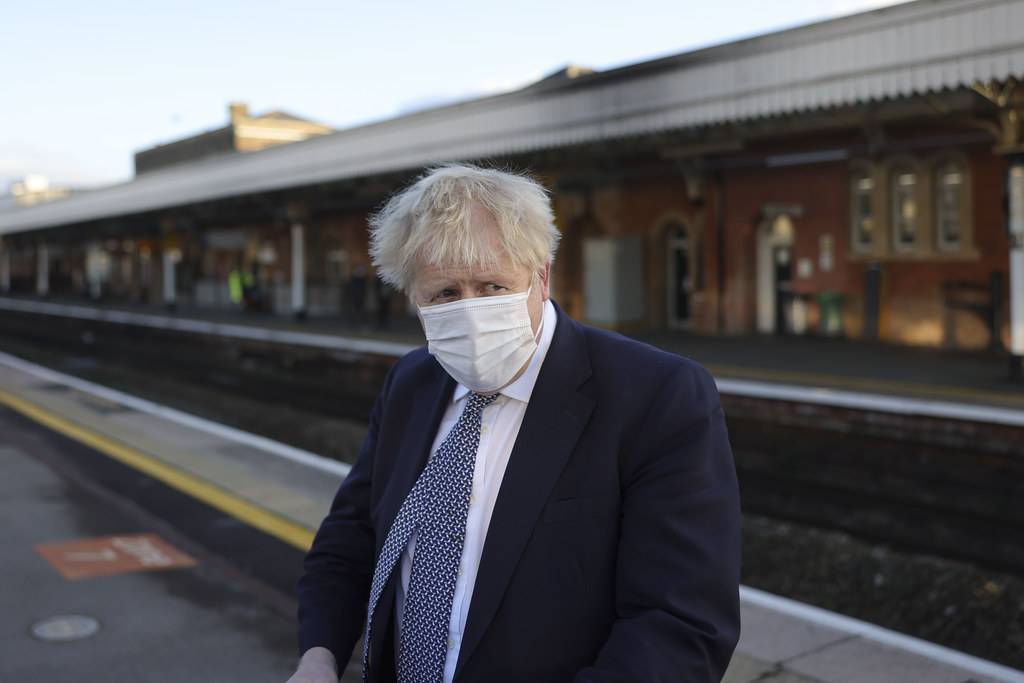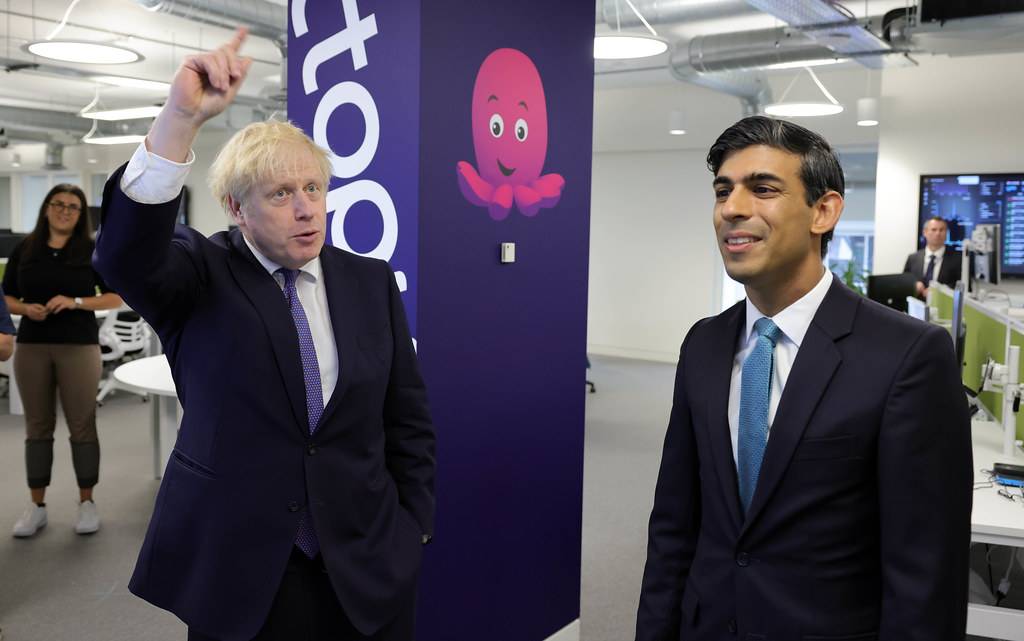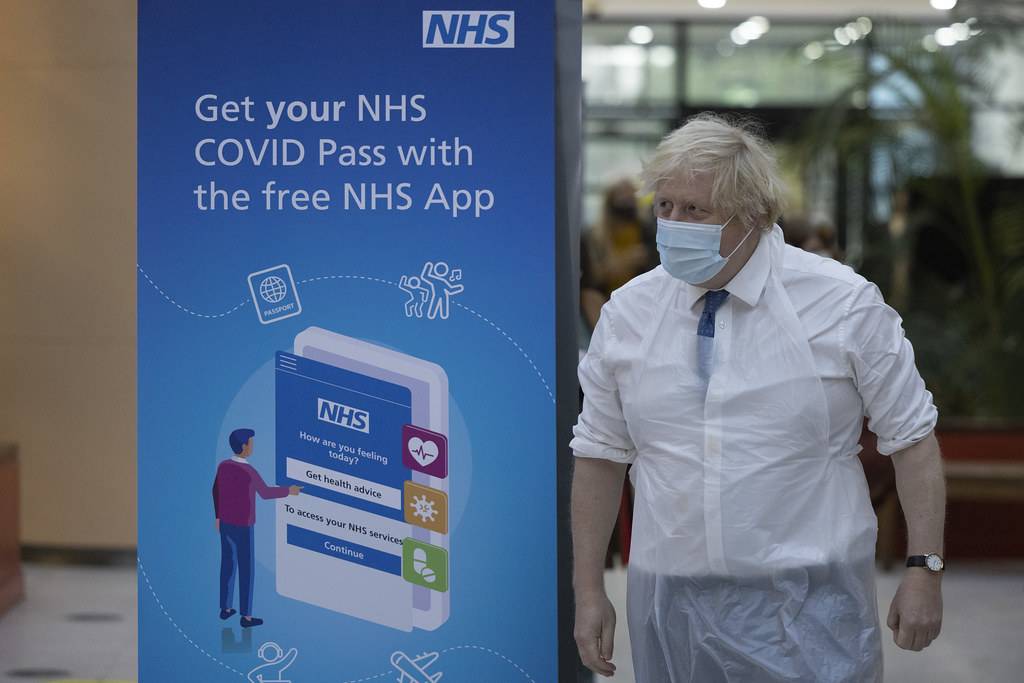He acknowledged that the scandal surrounding parties during lockdown at Downing Street had damaged the public’s trust in the government, reports the Mirror…reports Asian Lite News
Chancellor of Exchequer Rishi Sunak has reportedly admitted to attending Prime Minister Boris Johnson’s lockdown birthday party in 2020 but refused to say what happened when he entered the room and claimed that he was in the Cabinet Room for a Covid meeting.
Johnson’s five aides, including longstanding policy chief Munira Mirza, chief of staff Dan Rosenfield, principal private secretary Martin Reynolds, and communications director Jack Doyle, resigned from their posts within hours of each other on Thursday, after a damning investigation revealed that multiple parties took place at Downing Street while the rest of the United Kingdom was living under strict Covid lockdown rules.
Sunak, who lives next door to the Prime Minister in Downing Street, is also reported to have attended a surprise birthday party for Johnson in No. 10’s Cabinet Room in June 2020.
He acknowledged that the scandal surrounding parties during lockdown at Downing Street had damaged the public’s trust in the government, reports the Mirror.
But, the Indian-origin Chancellor said, he believed his plans to deal with the cost of living crisis would help restore it.
Officers from the Met Police are investigating a total of 12 Downing Street parties.
It is believed that as many as six of those could have been attended by the Prime Minister.
Sack Sunak, cabinet colleague reportedly tells PM
One cabinet colleague is reported to have asked British Prime Minister Boris Johnson to sack Rishi Sunak, the capable Indian-origin Chancellor of the Exchequer in the same government. Two other ministers are said to have warned the Premier the Sunak is “on manoeuvres” for leadership of the ruling Conservative party. Both revelations were carried prominently by the Independent newspaper published out of London.
Meanwhile, The Observer, a Sunday paper, headlined: “Johnson’s removal is now inevitable, warns loyalist.” Sir Charles Walker said in an interview: “It is an inevitable tragedy. He (Johnson) is a student of Greek and Roman (for he studies Classics at Oxford University). It is going to end in him going, so I just want him to have some agency in that.” Earlier in the week, he told Channel Four News he would be stepping down as MP.
He added: “It is just not going to get better.” Sir Charles is a former Vice Chairman of the powerful ‘1922 Committee’ of backbench Conservative MPs, who are vested with the role of conducting leadership contests in the event there is a motion of no confidence in an incumbent prime minister. For a motion to be triggered, 15 per cent of the party’s MPs – 54 on the basis of its present strength in the House of Commons – have to demand such a vote.
The Independent had a different take on “partygate”, though, which has plagued Johnson for nearly two months. Conservatives MPs it spoke to, expressed the view that an “accidental” or premature no confidence vote could go in Johnson’s favour. This means MPs are hesitant to bring him down before London’s Metropolitan Police’s investigation into whether Covid-19 lockdown laws were broken by the 12 “parties” at the Prime Minister’s office-cum-residence at 10 Downing Street is complete. The outcome of this is expected in about a week. There are indications Johnson was present in at least three of the gatherings.
Under Conservative party rules, a leadership contest cannot take place more than once a year. In other words, if Johnson survives an early test, he cannot be challenged for another year.
While he promised a shake-up at Downing Street after a redacted report on “partygate” by senior civil servant Sue Grey found that Covid-19 rules had been serially violated within its premises, he was rocked by resignations of five close and senior aides before the weekend. His effort to bring in new staff have since apparently floundered.
Unusually for Britain, he brought in fellow minister Steve Barclay as chief of staff, a post generally occupied by a bureaucrat. This gave the impression civil servants are not keen to take up positions at the centre of political power as they possibly think Johnson’s future is uncertain.
He also appointed a former BBC journalist Guto Harri as director of communications. Harri worked with him in the same capacity when he was Mayor of London, In between, this Welshman has been a critic of Johnson, once warning publicly he would be a “divisive” Prime Minister.
Information filtering out of Downing Street over the weekend spoke of Johnson adopting a bunker mentality. Insiders were quoted as saying he had become “unpredictable and erratic”.
Lawmaker submits letter of no confidence in PM
Aaron Bell, a British lawmaker in the ruling Conservatives, said on Friday he had submitted a letter of no confidence in Boris Johnson, saying the prime minister’s handling of Downing Street lockdown parties had made his position untenable.

Johnson could face a vote of no confidence in his leadership if 54 of his 360 Conservative lawmakers submit a letter to the chairman of the party’s 1922 Committee.
Bell said he was profoundly disappointed in the situation after he backed Johnson to become leader.
“However the breach of trust that the events in No. 10 Downing Street represent, and the manner in which they have been handled, makes his position untenable,” he said in a statement on Twitter.
ALSO READ-Queen joins select group of longest-reigning monarchs


